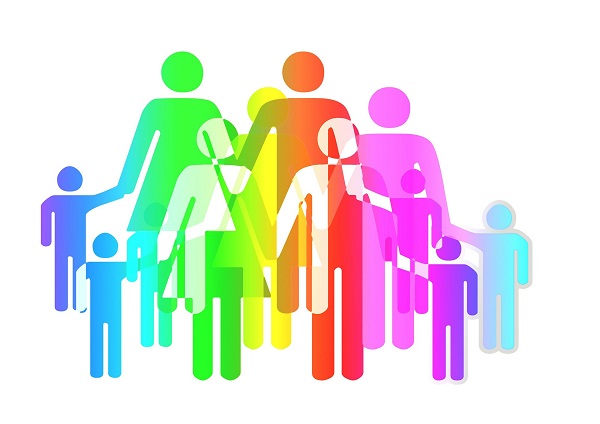
The concept of relatedness refers to the ways in which people conceptualize, organize and engage in the relationships that are important to them in everyday life. ‘Relatedness’ refers to kinship, but it may also be understood in a broader sense, for example referring to broader childrearing environments, or to ‘personal networks’, the set of social relationships surrounding an individual including friendships, acquaintances, and other social ties – both strong and weaker, vertical and horizontal bonds. Last, it also involves socio-educational and professional relationships that are produced within institutions. The group studies how such relationships are constructed and negotiated, how they change over time, how they produce, exacerbate or compensate inequalities, as well as how they are rooted in economic life.
While the research unit getp-GRAFO focuses on relationships of kinship and broader childcare environments, the unit egolab-GRAFO studies relatedness in a broader sense, focusing on individuals’ “personal networks” (see below). Both teams study the conceptualization and organization of relationships and their associations with inequalities and transnationalism.
Kinship, social organization, and transmission and learning processes
Taking as a starting point the realizations and limitations of the classical anthropology of kinship and in order to overcome the ethnocentric conceptions that led to assume a dominant role in the social structure of a genealogical space that was universal hypothesized, this line, after formalizing A proposal on the analytical domain of kinship anthropology, tries to build a set of reproductive models and establish their cross-cultural reach. The focus is also on the intersections of kinship with other domains, such as gender systems, education systems, and health systems.
In the field research, special attention is paid to the presence of relatives and non-relatives in social networks to try to overcome the ethnocentric conceptions that led to assume a dominant role in the social structure of the supposedly universal genealogical space.
Within the field of education, GRAFO develops theoretical and ethnographic research in different educational contexts, populations and territories, beyond the classroom, but also in the classroom. Closely related to the cultural reproduction of human groups, anthropology of education intersects with other domains investigated in the group, particularly kinship, but also social exclusion or community integration.
Personal networks and communities
The study of personal networks is an instrument for the investigation of community ties as well as the phenomenon of social exclusion. Special attention is paid to the phenomena of economic, social and civic integration, selective acculturation, and compatibilization or reconstruction of cultural representations and the identity of the minorities studied.
The image by geralt is licensed under CC0.


